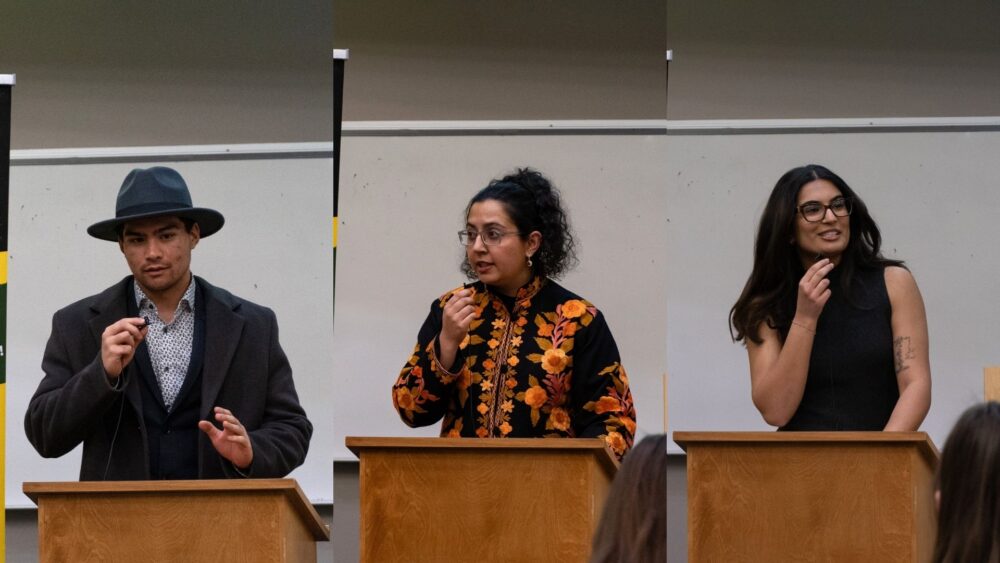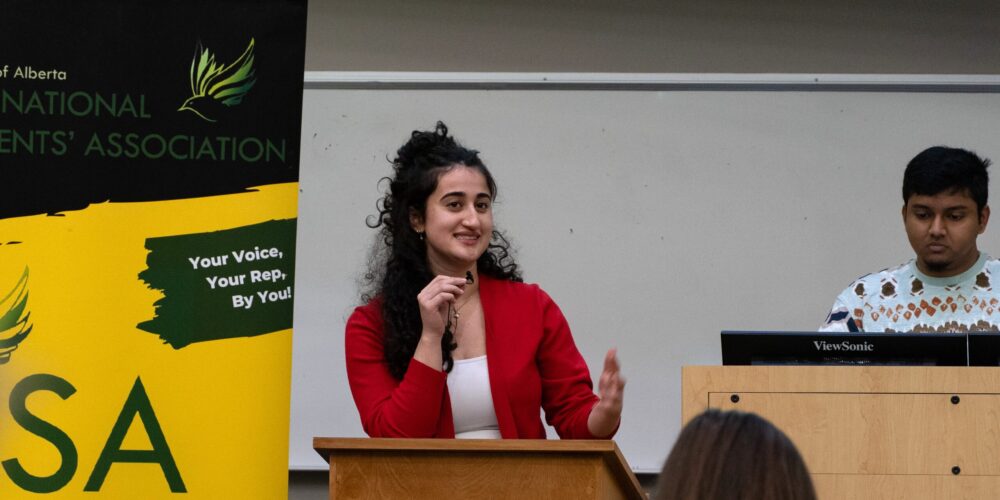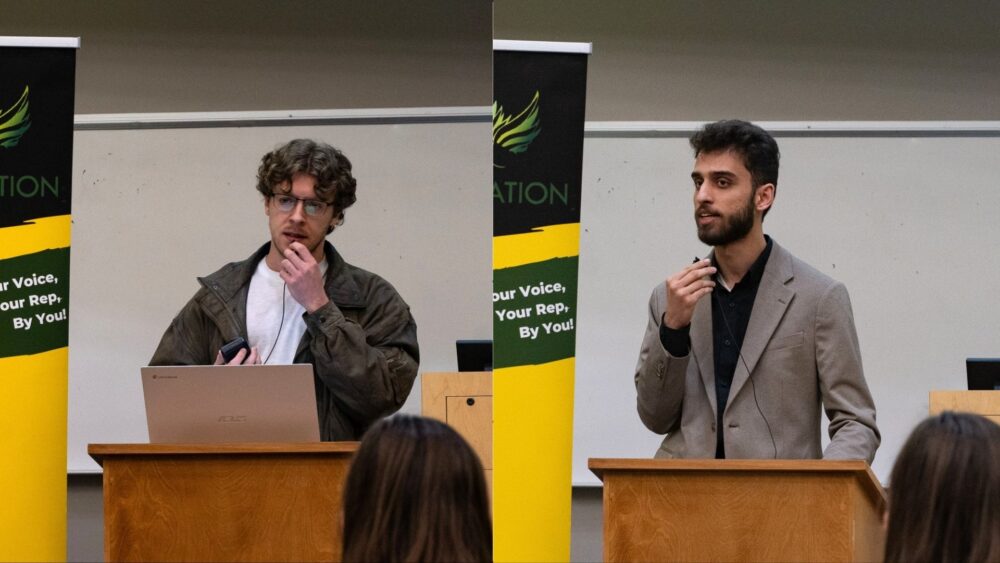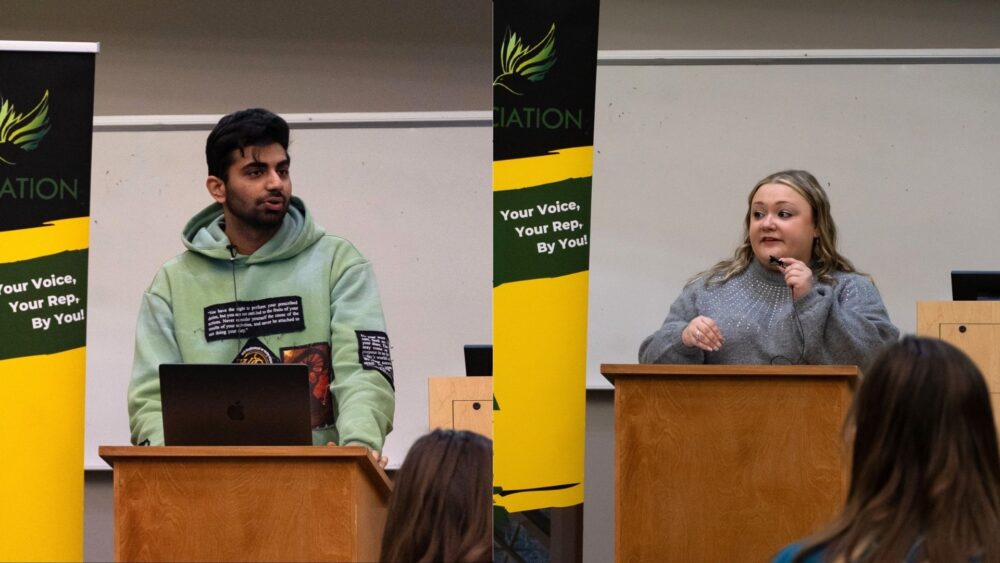Animal rights movement needs to be taken more seriously
 Supplied - Sangamithra Iyer and Wan Park
Supplied - Sangamithra Iyer and Wan ParkLet’s start discussing animal rights.
People often flippantly disregard this topic, which has become the focal point of immense and necessary social movement. But despite this apathy, it’s time to question the buried violence and suffering inflicted by humans against animals.
Thanks to social media and undercover work by groups like Mercy For Animals, many people are now aware of what activists have dubbed “factory farming,” and the exploitation of farm animals that accompanies it. Factory farms are the gigantic, corporate-controlled operations which provide more than 95 per cent of all animal products consumed in Canada — that is, nearly all meat and dairy, unless you go deliberately out of your way to find an alternative source.
When we think of farms, some of us imagine cows grazing and sun tanning on green pastures. We have to stop. Such farms hardly exist outside the images stuck on so many supermarket animal products to dissuade the apparently innocent consumer from knowing they are personally funding warehouses and abattoirs filled with antibiotic-ridden, unsanitary, force-fed, frequently mutilated, artificially-inseminated and undeniably suffering bodies.
Animal advocacy is as ancient as the Greeks. The reason it now focuses so vehemently on our consumer habits is because our “agriculture” is, by a tremendous margin, the biggest site of deliberate and prolonged violence inflicted by humans against animals of all time. Moreover, it’s happening for almost no reason other than the trivial human want of having food at any time, for as little cost as possible.
Many people see animal rights as less important than other civil rights movements. This is destructive for countless reasons. Philosopher Peter Singer put forth a useful angle in the 1970s, when he argued we are obliged to grant rights in accordance with all the interests of all sentient things that have interests. It’s not in a cow’s interests to practice religion, so we don’t need to grant it the right to freedom of expression. But it’s undeniably in the interest of any animal to avoid suffering for human wants. To flatly ignore this is nothing short of discrimination.
This might be too formulaic for some people. That’s fair.
A more recent book that explores this issue from a relatable, conversational perspective is Eating Animals by Jonathan Saffron Foer. One of Foer’s central themes is how narratives and story-making shape our daily lives. How we view ourselves in relation to other animals, and thus rationalize our use of them, is no exception to our narrative-based minds. For example, we use a narrative when we say something like “cows are dumb,” to create some sort of evolutionary hierarchy of privilege to justify our abuse of animals.
In any other context, this is dangerously close to social Darwinism. Qualities like “intelligence” are invented by humans, and only understood by humans. Various groups have been using meaningless qualifiers to argue for superiority over other groups for all of human history – consider “skull shape,” “skin colour,” etc. So I’ll say it: cows are not dumb.
Exploitation is exploitation, apathy is apathy, and violence is violence, regardless of how culturally encoded and systematized these things are. Remember that the status quo is not there to be glorified, but to be questioned.
I’ll end where I started: let’s start discussing animal rights.





I’m glad that this topic is picking up speed. Everyone should be aware of and concerned about where their food comes from. Eating Animals is a fantastic, easy read that really opens a person’s eyes to an industry that everyone knows is bad, but chooses to ignore. One thing: it’s “Safran”, not “Saffron”. Otherwise, nice work!
” It’s not in a cow’s interests to practice religion, so we don’t need to grant it the right to freedom of expression. But it’s undeniably in the interest of any animal to avoid suffering for human wants. To flatly ignore this is nothing short of discrimination.”
I really liked those lines. Thanks for writing this; we need more voices heard on the topic, and we need animal rights to be taken seriously.